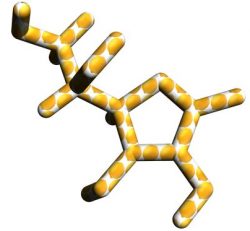EGGS CONFIRMED AS CRUCIAL TOOL FOR INFANT DEVELOPMENT
A new literature review has highlighted the role eggs can play in improving infants’ protein, vitamin and mineral intake during childhood.
The report, by nutrition student Amy Smith, looked at international intervention studies, and found eggs to support child development despite having relatively few calories.
One study in the review, conducted in Ecuador, found infants were 47% less likely to be stunted and 74% less likely to be underweight when they added one egg a day to their usual diet.

Photo: Shutterstock
High quality of protein in eggs
Despite an egg containing fewer than 70 calories, the quality of the protein is high, she said. This means that an egg provides all the essential amino acids and protein building blocks needed for the human body to grow and develop.
Ms Smith explained: “Eggs have been shown time and again to add nutritional value to our diets, both in developing countries and here in the UK. Childhood is a time when the diet needs to be as nutrient-dense as possible without delivering excess calories, fat and sugar which, especially in developed countries, can increase the risk of obesity.
“Foods like eggs, which are high in protein, B vitamins, vitamin D and minerals, are therefore an excellent choice. They also have the benefit of storing well and are simple to cook.”
The report also highlighted specific nutrients in eggs that support optimal health and development during childhood, such as:
- B vitamins for energy release
- Vitamin D for bone health and immune function
- Choline which is essential for normal cognitive development and function
- Iodine for brain development
Eggs one of the best first proteins
According to dietitian Dr Carrie Ruxton, parents are often unsure when to introduce eggs into children’s diets. She said: “Weaning can be a confusing time given the wide range of advice provided by family and health professionals so eggs are often forgotten.
“Yet they are one of the best first protein foods once your baby has reached 6 months. Apart from the rich nutrient content, eggs are easy to digest and quick to prepare. Studies show that early introduction of eggs helps infants to avoid certain food allergies – probably because the immune system gets used to the different proteins.”
Ms Smith’s report, The role of eggs in the nutritional status of children in developing countries, was published in Network Health Digest
Jake Davies
Editor Poultry World
Source: www.poultryworld.net












